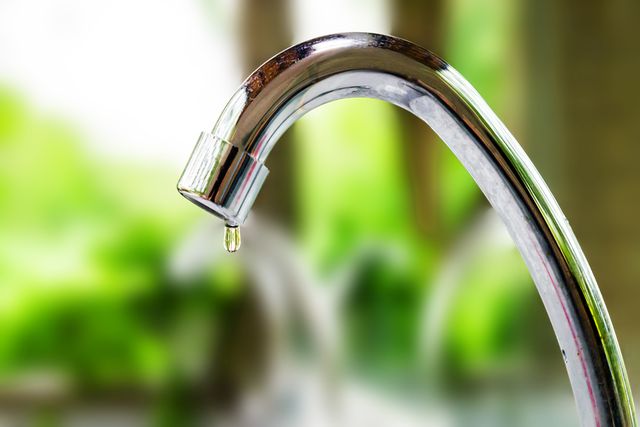As a tenant you may be obligated to contribute to the water consumption of the property you are renting.
Lessors are able to pass on the full water consumption charges to tenants if:
- the rental premises are individually metered (or water is delivered by vehicle), and
- the rental premises are water efficient, and
- the tenancy agreement states the tenant must pay for water consumption.
Here are some ways that as an owner and a tenant you can reduce water usage in a rental property.
Owners
- Install a rain water tank. A small want (up to 2,000L) can easily be plumbed into your toilet and washing machine. This could save you over 20,000L of water a year.
- If your investment property has a pool, consider investing in a pool cover. This will reduce water in a rental property by decreasing the amount of water lost through evaporation. In the space of 12 months you can lose more than your pool’s entire volume of water.
- Choose waterwise plants and turf that don’t require constant watering. Many council websites will have a list of plants that are low maintenance. Or speak to your local nursery.
- If you have an investment property with beautiful gardens, consider installing a weather-based irrigation controller. Rain sensors can be connected to your irrigation system to prevent watering during and after significant rain.
- Make sure that your property doesn’t have leaking taps. Leaking taps are usually a cheap and easy fix. Leaking taps can waste up to 10,000L of water per year. If you need a very reasonably priced plumber, please give our office a call.
- Check that your toilets aren’t leaking. If you have a leaking toilet cistern you could be wasting around 9,000L of water a year. To check if your toilet is leaking, make sure that the bowl is dry and place a sheet of toilet paper under the rim at the back of the toilet. If the paper is wet when you return you have a leaking toilet.
- Water efficient shower heads are also a good way to reduce water usage in a rental property. Choose a WELS (Water Efficient Labelling Standard) rated shower head that is 4 or 5 star. At the top of the water rating label, the star rating shows the water efficiency of the product — the more stars, the more water efficient the product is. This can save you and your tenants up to 20,000L per year.
- Purchase a dual flush toilet. This alone can save you up to 80L of water per day.
- If you aren’t renovating and don’t want to upgrade all of your taps to water efficient ones considering installing a tap aerator. These are flow restrictors that not only prevent water spray but save on water consumption.
For tenants
If you are a tenant looking to save on water, consider the following:
- Take 4 min showers. This is considered the average length of time a shower should take.
- Use grey water (used water) from your shower, bath or washing machine for watering plants.
- Brush your teeth with the tap off.
- Purchase a front loader washing machine. Water efficient front loaders use up to 35% less water than the average top loader.
- If you have a dishwasher, make sure it is full before putting it on. This may sound basic but too many people wash as they go instead of filling the dishwasher up before starting it.
- Scrape your dishes instead of rinsing them before putting them in the dishwasher. Not only will this result in cleaner dishes but also less water usage.
- Use a broom to clean your driveway instead of the hose.
Property maintenance and how we can help
Position One Property have been providing Property Management Services in Brisbane since 2001 and have a number of highly skilled plumbers available to discuss your water efficiency requirements. If you are a tenant and you have a repair request that may improve your water efficiency (such as leaking tap) please visit our website and download the Repair request form. You can also check our guide to renting for further information. Our property managers are always happy to assist if you have any other questions. If you would like more information regarding the WELS rating system you can visit the Australian Government water rating label website.

